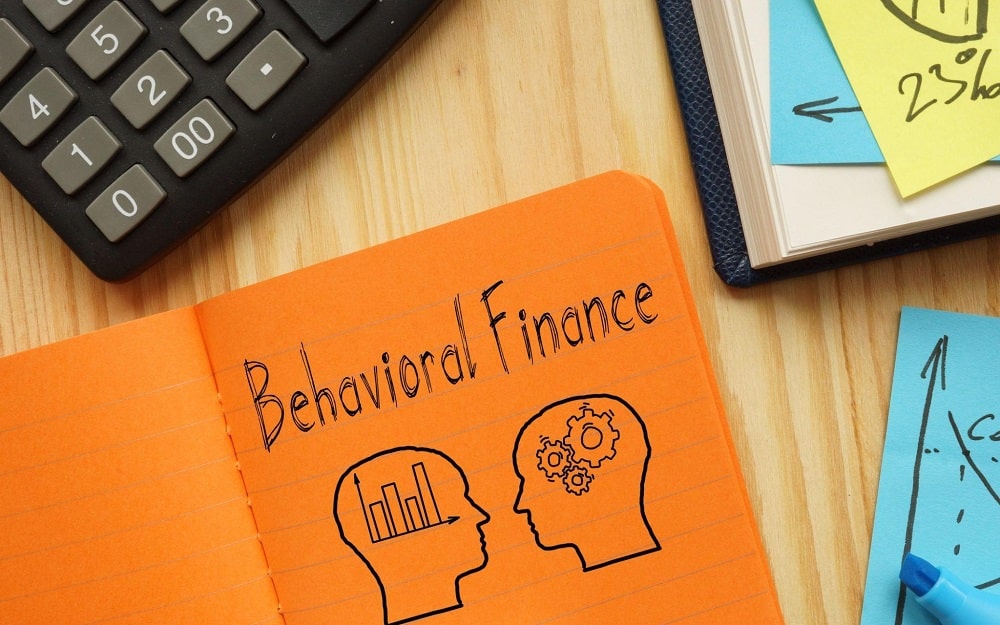Investing isn’t just about numbers, charts, and market data. It’s also about psychology. In fact, your mindset might be influencing your portfolio more than any news headline or earnings report. That’s the heart of behavioral finance—a field that studies how our emotions and biases lead us to make irrational money decisions.
You might think you’re making logical financial choices, but decades of research (and countless real-life case studies) suggest otherwise. From panic selling during market dips to holding onto losing stocks in hope of a rebound, investors often act in ways that hurt their long-term performance.
Understanding these psychological traps can make you a better investor—more disciplined, more strategic, and ultimately, more successful.
Why We’re Wired to Be Bad Investors
Let’s start with the basics. The human brain evolved to prioritize survival, not long-term planning. That means we’re more sensitive to short-term threats than long-term opportunities. In financial terms, we feel the pain of losing € 100 more strongly than we enjoy gaining € 100. This is called loss aversion, and it’s one of the most powerful biases in investing.
Daniel Kahneman and Amos Tversky, pioneers of behavioral economics, found that people typically need gains of at least twice the size of a loss to feel emotionally “even.” In practice, this leads many investors to sell winning investments too early (to lock in gains) and hold onto losers for too long (to avoid admitting defeat).
This behavior can have real consequences. A 2022 DALBAR study found that the average investor in U.S. equity mutual funds earned about 6.8% annually over the past 30 years, compared to the market return of 10.0%. That gap? It’s largely due to poor timing—jumping in and out of the market based on fear and excitement.
The Mental Pitfalls That Derail Investment Success
Beyond loss aversion, here are a few other common psychological traps:
Overconfidence – Many new investors believe they can “beat the market,” especially after a few lucky wins. This leads to excessive trading, risk-taking, or concentration in a single stock. Over time, overconfidence can cost you both returns and sleep.
Recency Bias – We tend to give too much weight to recent events. If the market just went up 10%, we assume it’ll keep going. If it dropped, we might fear it will never recover. In reality, markets move in cycles, not straight lines.
Herd Mentality – When everyone around you is investing in a hot trend (think meme stocks or crypto peaks), it’s hard not to join in. But following the crowd often leads to buying high and selling low—the exact opposite of a smart strategy.
Anchoring – This is when you fixate on a specific number, like the price you paid for a stock, and refuse to sell until it “gets back there.” The market doesn’t care what you paid. What matters is where that money could grow better today.
How to Outsmart Your Own Brain
You can’t eliminate your biases—but you can manage them. And that’s where strategy comes in.
Start by creating a written investment plan. Define your goals (retirement, buying a home, building passive income), your time horizon, and your risk tolerance. When emotions run high, this document becomes your anchor—not the latest headlines.
Automated investing also helps. Using platforms that allow for monthly contributions (like Moneyfarm, Trade Republic, or even ETF-based robo-advisors) keeps you investing consistently, regardless of market swings. It also reduces the temptation to time the market or overreact.
Diversification plays a role, too. If your portfolio is spread across sectors and regions, no single dip will wipe you out. This not only reduces financial risk—it reduces emotional risk.
Finally, make a habit of reviewing your investments quarterly, not daily. Checking your portfolio too often increases stress and leads to impulsive decisions. Investing is a long game. Let it play out.
Train Your Mind, Grow Your Wealth
At its core, successful investing is less about mastering the markets and more about mastering yourself. The best investors—those like Warren Buffett or Ray Dalio—aren’t immune to fear or greed. They’ve simply built systems to keep those emotions in check.
You don’t need to be a psychology expert to do the same. Start with awareness. Recognize the patterns that trip you up. Create habits that keep you consistent. And remind yourself: it’s not about being perfect—it’s about being disciplined.
In 2025, with so much noise and temptation around, behavioral finance isn’t just academic theory—it’s a toolkit. And for retail investors, it might just be the most valuable asset of all.

